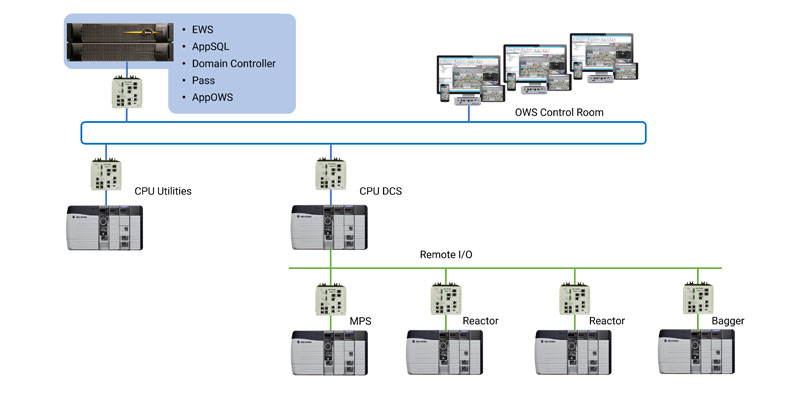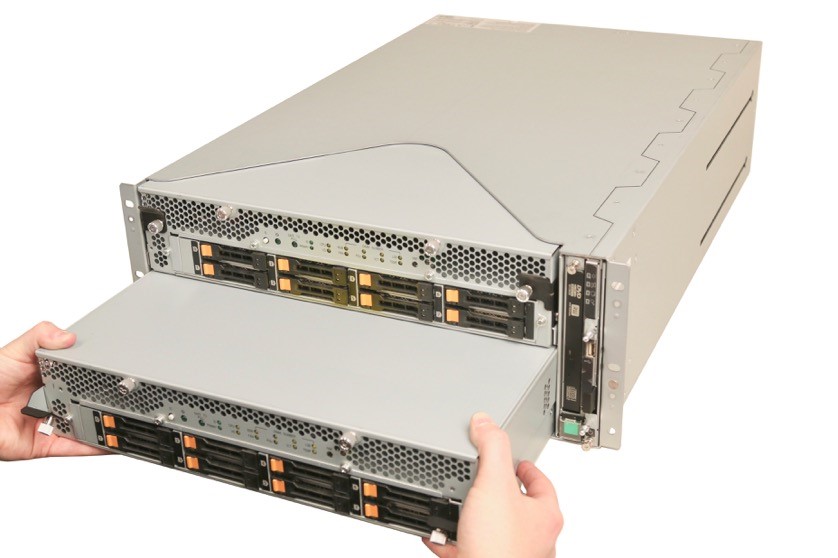Production facilities across the globe are navigating the growing pains of digital transformation. Faced with increased demand, staffing issues, and uniquely complex compute environments, enterprises are searching for “a single platform, which delivers enormous savings for engineering, operations, and maintenance,” according to Frank Hill, Director of Rockwell Partnership at Stratus. For one plant, the answer was a distributed control system.
In the late 2010s, the London-based chemical company Synthomer transformed those universal pain points into profits with the right edge computing solution to simplify and optimize their operations. This solution was created by system integrator Progecta, with a little help from Rockwell Automation and Stratus.
A Simplified Solution Unites Islands of Automation
Synthomer’s path to modernization started at their Sant’Albano Stura production facility in Piedmont, Italy, where a new reactor project prompted management to replace existing disparate and multi-branded PLCs with a Distributed Control System (DCS). This move drove a 30% increase in production — gaining the company millions of Euros of additional revenue, according to Rockwell. They achieved all of this without ever shutting down the plant.
The new reactor project also set the stage to improve operational safety, resilience, and analytics across the whole plant. Because the reactor — one of the largest of its kind in Europe — was coming online with Rockwell PlantPAx® DCS, the plant managers in Piedmont saw an opportunity. Why not push the entire facility to adopt the same system? The benefits would prove to be countless.
Prior to this modernization of the Sant’Albano Stura plant, Synthomer was controlled by PLCs from different manufacturers operating independently like siloes. These islands of automation were difficult and expensive to maintain and operate. To address this challenge, Synthomer first replaced all the existing multi-branded PLCs to Rockwell Automation Allen-Bradley® ControlLogix® Programmable Automation Controllers (PAC).
The modernization worked. Using Rockwell as a single vendor standardized operations and maintenance and fully integrated the plant. The facility could finally control all components centrally, which fit their needs. By 2018, the plant was a state-of-the-art chemical manufacturing facility. Impressively, over the course of the three-year digital transformation project, production never stopped.
However, there were new problems to solve with this pioneering compute infrastructure. Moving from multiple control PLCs to a single centralized DCS required an upgrade in failure protection to avoid costly downtime and other risks. That’s where Stratus fault tolerance comes in.
The Benefits of a Fault-Tolerant Distributed Control System
To protect their modernized operation, Synthomer chose the Stratus ftServer®. It provides the platform to house all the software that is used to engineer, program, operate, and maintain the Rockwell PlantPAx DCS.

By choosing a fault-tolerant server, Sythomer’s streamlined operation got smarter and safer. The Stratus ftServer provides built-in redundancy, with continuous availability and data protection. It also offers redundant components, synchronization, and replication of all software components of the DCS. Finally, just like the Rockwell DCS, the Stratus ftServer has hot-swappable hardware — a boon to the reliability and maintainability of the entire solution.

According to Frank Hill from Stratus, “redundancy at the compute level matched with PlantPAx DCS redundancy at the control level is a formidable combination for downtime prevention for mission-critical applications. By partnering with Rockwell Automation to characterize this joint solution, we’re delivering a massive leap forward for operations.”
To realize this vision, Stratus has also planned for the practical. Engineers and operators on the edge know things don’t always go according to plan. That’s why the Stratus ftServer is also self-diagnosing and self-healing. It can troubleshoot any platform-related problems by itself without interruption to day-to-day operations on the plant floor.
Lessons for When the Only Certainty Is Uncertainty
The case of Synthomer is a great example of betting on transformative change and winning business results. For a chemical plant in particular, greater ease of use translates to improved safety: for operators, surrounding communities, and the environment. This simpler, cutting-edge distributed control system also provides Synthomer with a wealth of historic data to analyze plant performance, report on environmental compliance, and furnish regulatory organizations with safety metrics. The addition of the Stratus ftServer means Synthomer has a reliable platform to store this critical data.
Building a compute infrastructure that accounts for today’s pain points while looking to the future is a specific set of challenges for every enterprise. Everyone can learn the lesson from Synthomer that simplicity and protection are key to exceeding in today’s industrial automation environments and gaining the data insights to prepare for tomorrow.
To learn how your operation can achieve 99.999% uptime and powerful analytics capabilities, check out the recently released Stratus ftServer Generation 11.